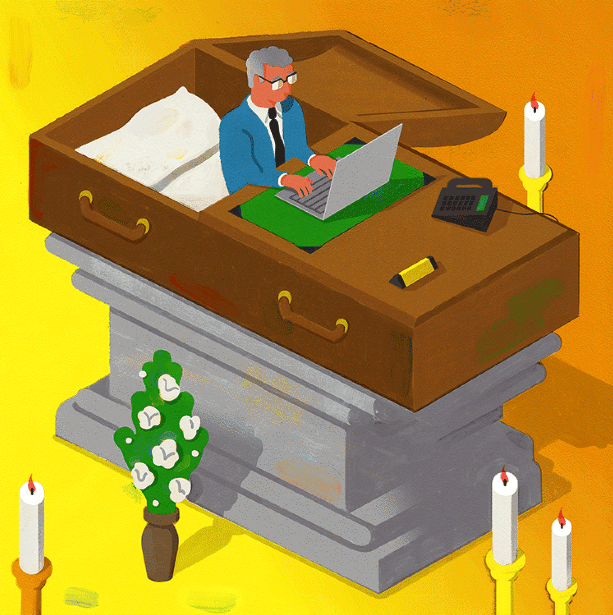 Since the 1960s, labor activists and workers’compensation attorneys have grown increasingly concerned about health problems in Japan resulting from long working hours. The problem became so widespread in recent decades that the term Karoshi, or “death from overwork,” went mainstream.
Since the 1960s, labor activists and workers’compensation attorneys have grown increasingly concerned about health problems in Japan resulting from long working hours. The problem became so widespread in recent decades that the term Karoshi, or “death from overwork,” went mainstream.
Research shows that more than 6 million Japanese workers regularly log more than 60 hours per week. Between 2002 and 2005, the Ministry of Health, Labor and Welfare (MHLW) identified nearly three hundred cases of brain and heart disease as “workplace accidents” or occupational disease as a result of overwork (Karoshi). Consequently, the MHLW has been working to establish a more equitable compensation system for Karoshi, as well as preventive measures for health problems related to overwork.
In 2001, the MHLW set global standards for directly recognizing links between worker death and adverse health effects and the amount of overtime working hours. These standards were based on the results of a comprehensive medical study on the relationship between overwork and brain and heart diseases. In 2002, the MHLW launched a program to prevent health impairment due to overwork, and in 2005 health guidance through an interview by a doctor for overworked workers has been enacted as law.
Long working hours are a serious issue due to health and safety risks as well as impacts on personal and family life and workplace productivity. We clearly need to continue researching the effects on worker health and the prevention of dangerously long working hours. These problems apply not only in Japan but here in the U.S. and all over the world.
If you are suffering from a workplace injury or illness, contact Emery Reddy today for a free case analysis.




